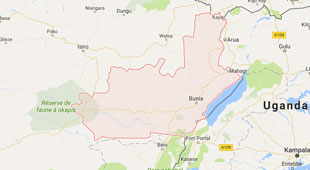![]()
Prospects for high-tech manufacturing beckon for Africa as the United States moves to secure critical supply chains and cultivate a robust new frontier in the global semiconductor market.
SPECIAL REPORT | BIRD AGENCY | Africa could finally insert itself into the chip-making value chain as the U.S. taps Kenya for a groundbreaking semiconductor manufacturing partnership.
In the World Economic Forum’s latest analysis, this development represents a pivotal moment for Africa, offering an opportunity to transition from a raw materials supplier to an essential player in the high-tech ecosystem.
In May 2024 the US Trade and Development Agency teamed up with Kenya to enhance semiconductor manufacturing in the East African country, a move that would bring Africa into the fold of global semiconductor supply chains.
“USTDA’s assistance will unlock significant investment opportunities for Semiconductor Technologies Limited (STL) and for the Kenya semiconductor ecosystem, fostering extensive bilateral and private sector engagement among the U.S., Kenya, and the broader continent,” said STL’s Founder and Chief Executive Officer, Anthony Githinji at the time.
For years, Africa has been seen primarily as a source of raw materials, but this partnership signals a new era where the continent can become an integral part of the high-tech supply chain.
The WEF highlights that this partnership is just the beginning of a larger strategy to secure critical supply chains and foster dynamic growth in the global semiconductor landscape.
“This development signals a pivotal moment for Kenya and the African continent, which is beginning to position itself as a critical player in the global semiconductor ecosystem. But it’s just the first move in a much larger game,” said Ayodele Okeowo Managing Director, Tusk Strategies and Nii Simmonds Nonresident, Senior Fellow, Atlantic Council in their analysis for the Forum’s Centre for Advanced Manufacturing and Supply Chains report.
This comes after authorities in Beijing announced that they would be tightening export controls for some types of graphite, a critical mineral for the production of batteries and other electronics.
Kenya, along with other African nations like Nigeria, Rwanda, and Ghana, boasts abundant critical minerals necessary for semiconductor production.
These countries also have a youthful population eager to embrace technology and innovation.
“These nations could become critical hubs in a global network that demands resilience and adaptability and as billions of dollars pour into national semiconductor markets, as seen in the United States, South Korea, China and the European Union (EU),” the WEF report said.
“As the United States develops its semiconductor manufacturing capacity domestically through historic direct investments in projects across the supply chain – $327 billion over the next 10 years – there has also been an emphasis on increased coordination with friendly and allied global partners.”
Leveraging these resources, the initiative aims to create a sustainable and resilient supply chain that can withstand global market fluctuations and geopolitical tensions.
At a time when the global semiconductor industry is grappling with supply chain disruptions, this move is crucial.
The COVID-19 pandemic exposed vulnerabilities in the existing supply chain, leading to significant shortages and production delays.
Establishing a manufacturing hub in Kenya aims to mitigate these risks and ensure a steady supply of semiconductors, vital for industries such as automotive, electronics, and telecommunications.
The partnership includes substantial investments in infrastructure, technology transfer, and workforce training with the approach designed to build a robust semiconductor manufacturing ecosystem in Kenya, capable of meeting international standards and demands.
While the potential benefits are significant, the initiative also faces several challenges. Building a semiconductor manufacturing industry from scratch requires substantial investments in infrastructure, education, and technology.
Developing a regulatory framework that supports innovation while ensuring environmental sustainability is also essential.
However, the strong commitment from both the US and Kenyan governments indicates a determination to overcome these challenges.
By fostering public-private partnerships and leveraging international expertise, the project aims to establish a solid foundation for long-term success.
****
SOURCE
bird story agency
 The Independent Uganda: You get the Truth we Pay the Price
The Independent Uganda: You get the Truth we Pay the Price



